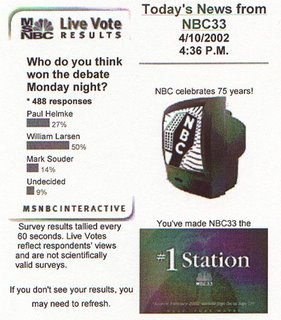Minimum Wage
An editorial in the News Sentinel about the minimum wage was complaining about Bob Caylor’s opinion on it. Well I would like to add my 2 cents worth. What a person is paid is between them and their employer. I worked for minimum wage ($1.65) for a few days and looked for another job and found one. The complainer said there were 1.9 million workers who were paid minimum wage and they were the ones who would do better under a higher wage. Well, that is not totally true.
As the United States Average Wage increases, so does the replacement rate for each year you worked. This replacement rate is the difference between the US Average Wage in the year you turn 60 and each previous year. Each year you worked will have a unique replacement rate and each cohort will be different. Assuming the minimum wage does not reduce employment among the group affected, the US Average Wage will increase, which in turn will increase the initial Social Security Old Age Benefit for everyone not yet retired. It won’t be a lot, but let’s face it; Social Security does not need more problems.
The consumer price index will increase. This is not fiction, but fact. The price of labor will go up, the employer will pay 7.65% on each dollar to Medicare and Social Security. Unless the owners do not pass the costs onto consumers, inflation will increase. But even if owners do not pass the cost onto consumers, the Federal Income Tax or corporate tax paid by employers will decrease. A decrease in Federal Taxes increases deficits, which no one likes and hurts everyone.
As inflation rises due to the increase in FICA tax (yes it is factored into the CPI), retirees COLA will increase, putting more strain on a bankrupt Social Security program.
A minimum wage in my opinion not needed. Many of the companies pay only minimum wage as starting wages and then increase them to a competitive level. 1.9 million out of 160 million workers is just over 1%. Think about who this 1% are? The vast majority are young people who are working their first job. Government does not have the expertise nor wisdom in setting what an individual should be paid.



2 Comments:
As an adjunct to the employer having to pay MORE salaries....if Mr. employer puts out $100K to have say 10 employees (at 10K a yr.)it will cost that employer another $50K to KEEP all 10.
If he "lays off" or dismisses 5 of them, he keeps the salary output the same, and those 5 left will get their higher minimum wage.
But what about the other "5"?
You guessed it...rising unemployment.
Just my take on it.
B.G.
B.G. your are correct. You either increase Mr. Employer's cost or you reduce the number of workers. The U.S. Average Wage is = Total Wages (divided by) total workers. If you have fewer minimum wage workers, the U.S. Average Wage increases. If you the same number of workers and the minimum wage increases, then the U.S. Average Wage Increases. No matter how you slice it or dice it, the affect on Social Security is negative. It increases the future initial benefit of soon to be beneficiaries who did not pay SS-OASI taxes on this income as well as increases inflation which will affect COLA in September 2007.
As I said before the affect on the Average Wage is not much about 0.15%, but it gets compounded by inflation and other factors. It is an artificial value with no real basis. Everything that is affected is then influenced and will change seeking a new level of equilibrium. In the end there most likely will be fewer low paying jobs and higher costs.
Post a Comment
<< Home